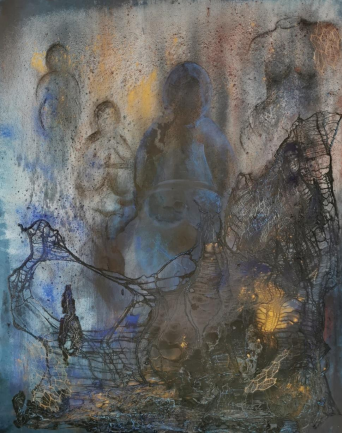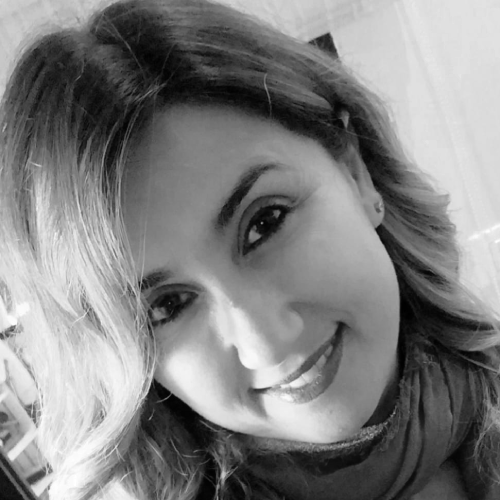My journey started in a destroyed Beirut

Arleb by Nabad interviews Maysaa Kassir, a “free artist” whose paintings and sculptures portray the human body and mind in different states.
Arleb by Nabad – What is your background?
Maysaa Kassir – My journey started in a war torn Beirut where everything abnormal seemed normal. I looked for beauty in destruction and found plenty. A destroyed city motivated me to pursue a diploma in interior design. My journey then took me far from Beirut to a new adventure in Nigeria, West Africa. I spent 16 years in a country that was different from my own yet just as equally rich with its culture and art. I found myself in a unique position filled with both the Arab and African cultures which inspired me to develop my passion in art and pursue a master’s degree at the Lebanese University.
Arleb by Nabad – What is the experience that has influenced your work in the arts and culture field the most?
Maysaa Kassir – My work has always been an extension and an expression of my reactions to my surroundings. It is the language with which I express my opinions, beliefs and values. My journey started in a destroyed Beirut and decades later that has not changed. Although powerful, the destruction of my surroundings and the pain that comes with it are not what revolutionized my soul and my art. It was the discovery of self-love. In 2010 I had a scare when I thought I might have breast cancer. However after two long months it was diagnosed to be a rare case called Mondor disease. With less than 400 cases worldwide, this disease became my beacon for self-love and gratitude. I became more in touch with myself, finding beauty in my flaws both under and above my skin. My newfound self-love has now been the most influential experience in my work as it has been a revolution for my soul.
Arleb by Nabad – Which subjects or themes are you working on?
Maysaa Kassir – My message for women around the world is to first be proud of who they are. My art stands as a beacon of inspiration for women to find power and love within themselves. Carrying on the responsibilities of motherhood has pushed women to love themselves less while loving their surroundings more. My main theme is female empowerment — I enjoy expressing the different embodiments of female energy.
Arleb by Nabad – What is your creative process like?
Maysaa Kassir – I enjoy giving my paintings the power to become whatever they want to become with no boundaries. For that to happen, I find myself extremely open minded and empty as I stare at an empty canvas wondering what it would make of itself. I find myself only as a tool of consciousness that seeks to be heard and seen.
Arleb by Nabad – What was the impact of the Beirut port explosions (August 4, 2020) on your work as an artist/creative enterprise?
Maysaa Kassir – The Beirut explosion was literally a “blast from the past”. It was an emotional traumas trigger — traumas from the civil war that were long forgotten. Although my family and home sustained minimum damage, it made me feel like I lost everything. I spent the next few months on the street, moving from house to house, listening to anyone who wanted to be heard, and assisting to rebuild what was lost. Along with a group of friends, we used our ties internationally to raise over 100,000 pounds that went directly to the people affected by the blast. I didn’t have the chance to express myself through my art directly. Instead, I found myself expressing my art as a carpenter, bricklayer, electrician and therapist. The little child in me who grew up in a destroyed city found herself happy to be a servant of the people.
Arleb by Nabad – What are, according to you, the roles of arts and culture in social, economic, environmental or political change?
Maysaa Kassir – We are a story-telling species; it is said that the act of gossiping is one of the key factors that allowed the human species to rise to the top of the food chain and eventually reach other planets. Gossip is not necessarily the negative stigma we consider today of talking behind someone’s back but rather gossip is the expression of the human emotion that craves to communicate and exchange feelings, thoughts, ideas, and it is the sole factor that labels humans as an “intelligent” species. We are the only species that are capable of expressing and exchanging ideas with each other.
The act of communication in itself is art and one of the earliest recorded artworks is a handprint in a cave thousands of years ago. Someone tried to say, “Hey I am here”. Social, economic and political values are simply man made concepts that allow us to all be part of the same community and work together to enhance our living standards. These imaginary concepts become “real” through art and communication.
During the Lebanese uprising last year in 2019 and 2020, one of the first things you noticed in an uprising is the artwork used to make the revolution “real”. From installation art to graffiti, creative chants, and creative flags/costumes. Arts and culture simply give the community a chance to collectively express an idea or change in direction by making it real.
An example I would like to shed light on is nationality. What makes me Lebanese? The answer to that is a passport, a flag, a national anthem and a bunch of other documents labeled “Lebanon”. Lebanon like all other countries is only real because of stories, art and culture. The power that comes with this form of art is unimaginable.
Arleb by Nabad – What are, according to you, the main challenges/obstacles facing artists/creative enterprises in Lebanon nowadays?
Maysaa Kassir – Art for me is every person’s right as it is an expression of freedom of thought. Other than the obvious financial challenges artists are facing, the main challenge is an artist’s freedom to express. As I have previously mentioned, art is a powerful weapon in changing an idea whether it comes through a painting, song, or writing. Many artists are using their creativity to express the need and want to change the direction of the nation. However, artists are increasingly becoming scared to express what they truly feel out of fear of being threatened.

